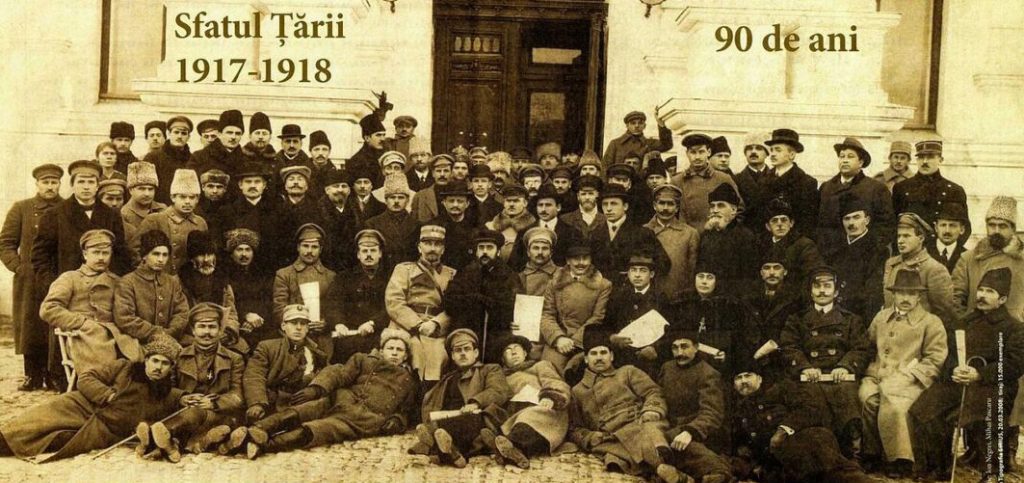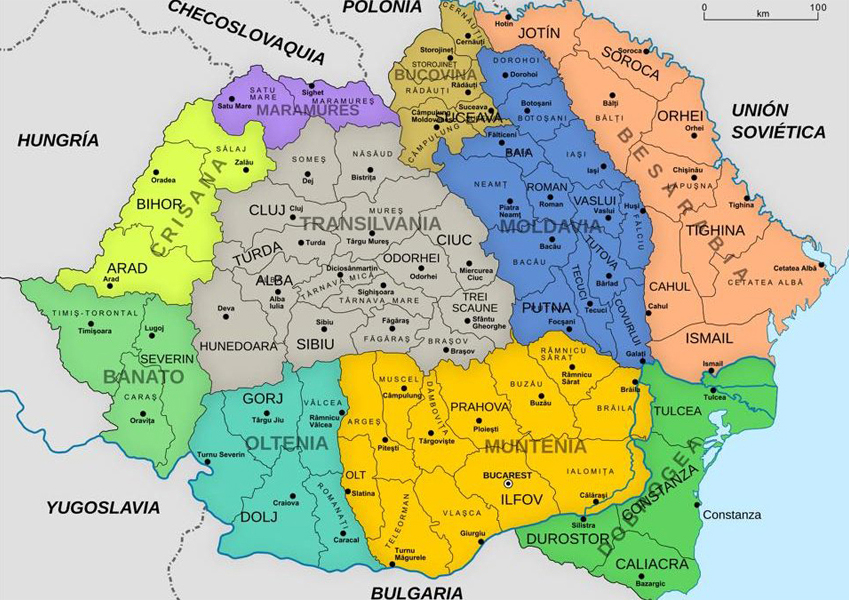
Please follow us on Gab, Minds, Telegram, Rumble, GabTV, Truth Social, Gettr, Twitter
March 27 marks the 105th anniversary of the union of Bessarabia with Romania. In 1918, Bessarabia reunited with Romania, a momentous and historic event that heralded the fulfillment of the destiny of the Romanian people. The unification marked an important milestone in the Romanian people’s quest for national unity, the very essence of which was the incorporation of all the historic Romanian lands within its borders. The union was the culmination of a century-long effort to unite all Romanians within a single, independent state.
Bessarabia was an integral part of the Principality of Moldavia from the early Middle Ages until the nineteenth century. After a series of conflicts between the Russian and Ottoman Empires, Bessarabia was forcibly annexed by the Tsarist Empire in 1812 and remained under Russian domination for over a century. During this time, the Romanians living in Bessarabia were subjected to various forms of oppression, including forced Russification, suppression of their language and culture, and political marginalization.
For Romanians, the incorporation of Bessarabia into Romania was not just a territorial issue, but a moral imperative. The Romanians in Bessarabia, like all Romanians, were part of a larger cultural and linguistic community that spanned present-day Romania, Moldova, and territories now occupied by Ukraine. The Romanian national movement sought to reclaim this lost territory and to reunite their brothers and sisters living in Bessarabia with the rest of the Romanian nation.

The union of Bessarabia with Romania was, therefore, a cause for great celebration among all Romanians. The momentous event took place on March 27, 1918, when the Sfatul Țării, a council of representatives from Bessarabia, voted for the region’s reunification with Romania amidst the collapse of the Russian Empire. The decision was quickly ratified by the Romanian parliament, and Bessarabia, at long last, again became part of Romania.
The union was a triumph for the Romanian people, as well as for the principles of self-determination and national sovereignty. For the first time, the Romanians of Bessarabia were given the opportunity to freely choose their political destiny, and they chose Romania. The union was greeted with jubilation, with church bells ringing and crowds cheering in the streets of Romanian cities.
The unification of Bessarabia with Romania was not without its challenges. The Soviet Union, which laid claim to Bessarabia, refused to recognize the union and fought against it for many years, ultimately brutally seizing the Romanian territory during World War II and carrying out a genocidal campaign against the Romanian population. Additionally, there was opposition among the Jewish and Russian populations living there.
The union of Bessarabia with Romania in 1918 was a seminal moment in Romanian history, a symbol of the national aspirations of the Romanian people. It was the first step in the achievement of national unficiation that was realized later that same year when Transylvania and Bucovina also joined Romania. It served as a beacon of hope for all Romanians, reminding them of the importance of unity, sovereignty, and self-determination. For Romanians, the union represented the culmination of a long and hard-fought struggle that was worth every sacrifice.